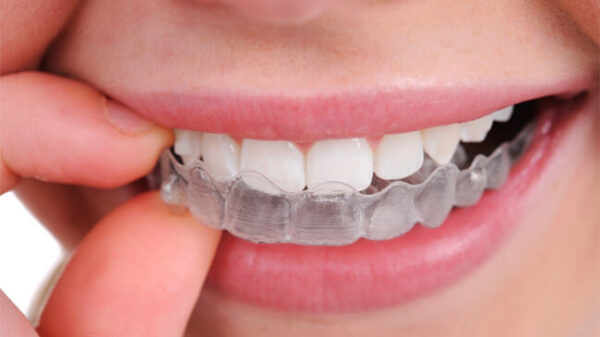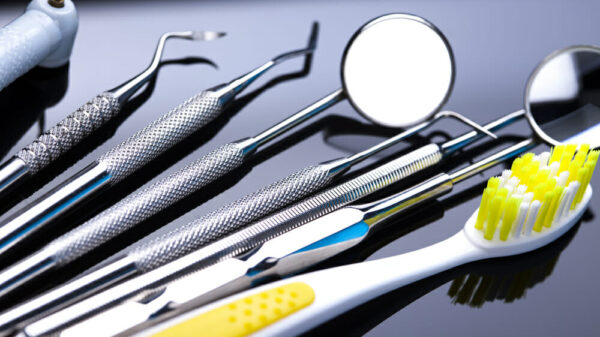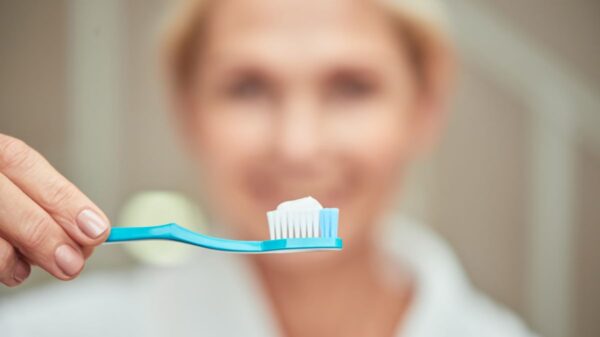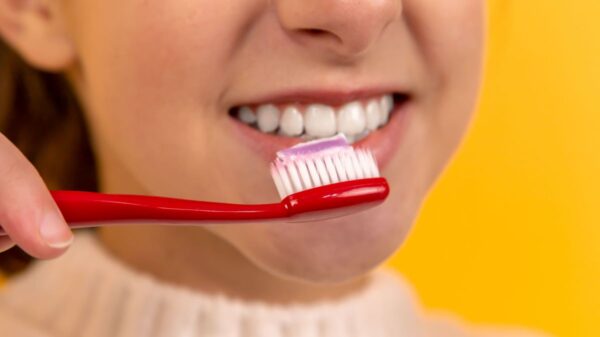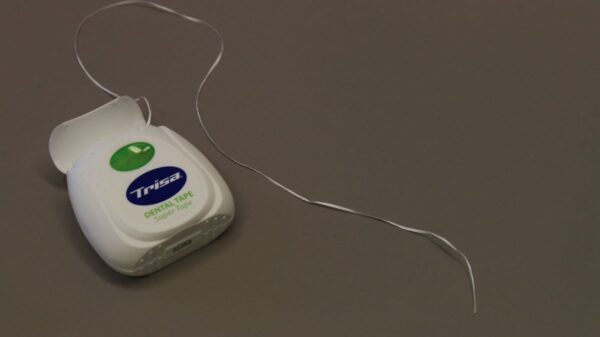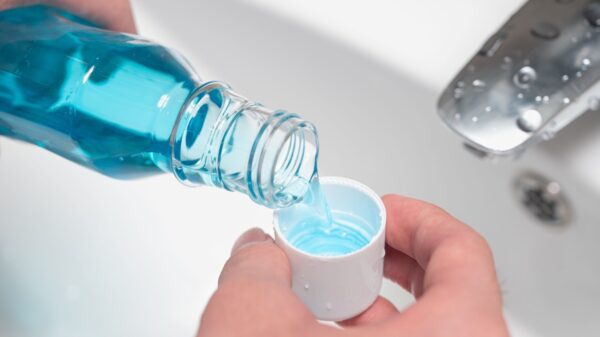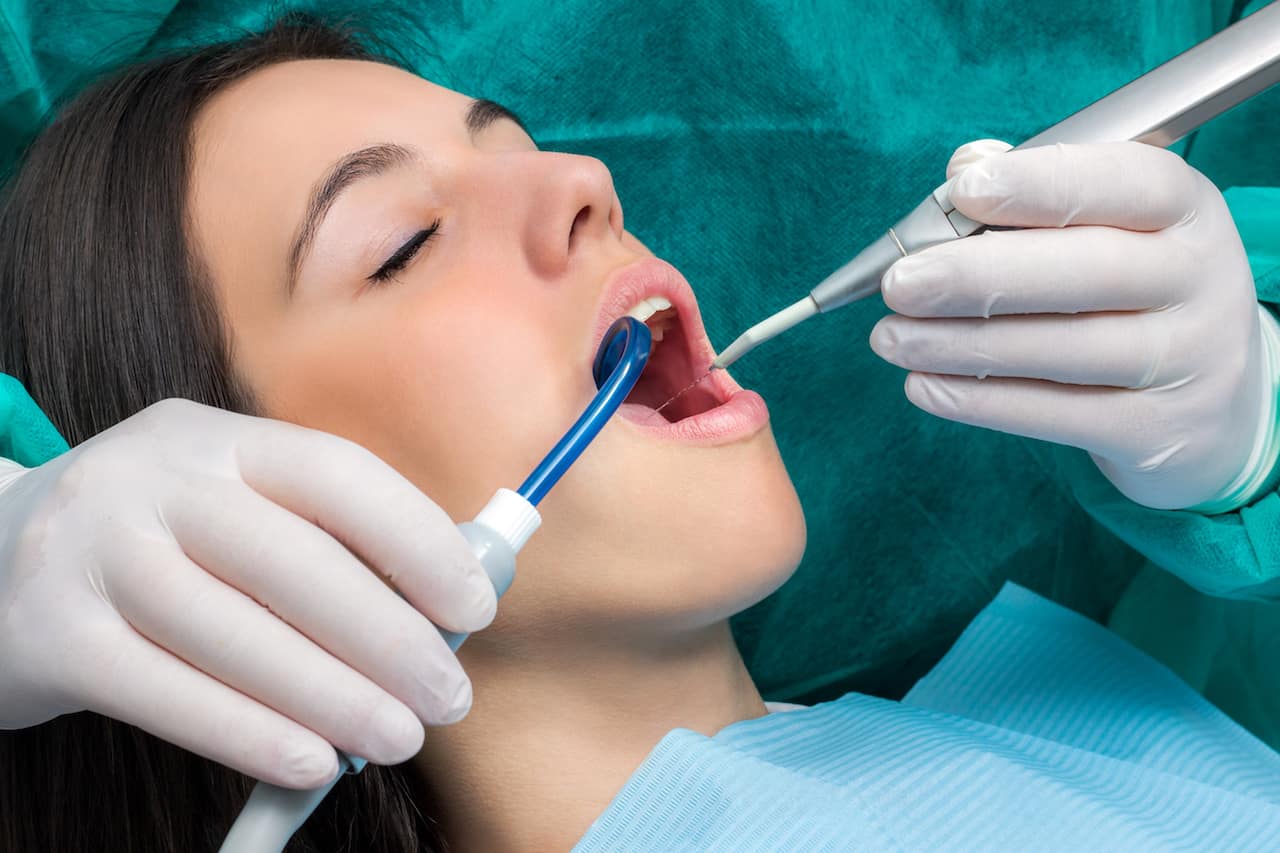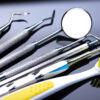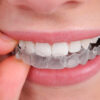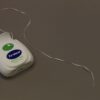Are Dental Deep Cleanings Painful?
When you think of a dentist, do you not get nervous? Dentists are very thorough when diagnosing or reading X-rays, so if they tell you that deep cleaning is necessary for your oral health, it can be scary. How painful will this experience be? Chances are, you will experience some pain during the procedure. Knowing the specifics of the process can help you get through your next dentist appointment!

What is a Deep Cleaning?
Getting a deep cleaning at the dentist seems like one of those procedures that might be a little more painful than some others. Metal instruments have to be used to get underneath all of the plaque and tartar buildups on your teeth. They can be removed from underneath your gums, but it doesn’t have to be that way.
Many people might not know this, but deep cleanings are done more frequently during checkups than most other procedures. Many times, they are conducted even if there isn’t a problem with your teeth at all! Deep cleaning is a general procedure that can help stop potential problems before they escalate into something worse. If you’re lucky enough to live in one of the places where dental care is free or paid for by the government, then you should take advantage of getting your teeth cleaned regularly.
Deep Cleanings at the Dentist
The doctor’s objective with a deep cleaning is to get rid of all the tartar and plaque in your mouth. Multiple tools will be used for this process, including hand instruments that they use to scrape gunk from your teeth and gums, water that they use to flush out your mouth, and sometimes the gas or air pressure to do the same thing. This helps them get rid of any bacteria left over from food particles still trapped in hard-to-reach crevices between teeth or stuck underneath crowns or fillings.
Cleaning out plaque buildup underneath your gums takes away the opportunity for bacteria to grow and cause gum disease (or Gingivitis). As soon as your dentist notices signs of gum disease, they will be able to take action and stop it from ever becoming a bigger problem. This can save you money and time in the future since you won’t have to go through the painful procedure of getting your teeth cleaned at a later date.
Are Deep Cleanings Painful?
Now, let us focus on the pain level of deep cleaning. A deep cleaning at the dentist is a procedure that requires your mouth to be numbed and can be unpleasant for some people. One thing to take into consideration is that there are different types of deep cleanings. If you have gum disease or cavities, your dentist needs to remove tartar buildup under the gum line which causes pockets in between your teeth and gums. This should not be painful at all because local anesthesia is used to numb up your mouth before this work begins.
The other type of deep cleaning is scaling the tooth root. During this procedure, an ultrasonic tip rotates 360 degrees across your teeth while water irrigates away any leftover plaque build-up inside the. The high-speed rotation allows the dentist to remove tartar buildup that would normally not come off with a toothbrush or floss. Now, if you are scared of the pain level of scaling the tooth root, there is no need for concern! Local anesthesia is still used to numb your gums before any scaling begins. You will feel pressure on your teeth but nothing unbearable at all.
When you get a deep cleaning, whether it is the first time or one of many over the years, chances are you will experience some discomfort. You might feel pain in your mouth when the dentist works with an instrument inside of it or feels pain in your ears when they use air pressure to help clean out gunk from deeper than usual. If not uncomfortable, then deep cleanings are probably just boring since you won’t be able to talk even if you wanted to. Families may also explore additional supportive options such as hospice care resources in Oklahoma to help address comfort and overall well-being alongside medical and dental treatment.And, needless to say, anesthesia may not always prevent all types of discomfort during this dental visit.

Let Your Dentist Know if You Experience Pain
You must talk with your dentist about any extreme discomfort during a deep cleaning because it may indicate that something is wrong. Sometimes discomfort means that they aren’t quite done yet and need more time or better tools; other times it could mean that something else in your mouth is wrong and needs immediate attention. Either way, when in doubt, let them know!
Will Deep Cleanings Always Hurt?
The good news is that if you must go through another deep cleaning soon because of insufficient results, it shouldn’t be as bad since you will already know what to expect. And after multiple deep cleanings, you will likely actually begin to look forward to the procedure because it won’t hurt as much anymore. The more you go to the dentist, the less scary it will feel and the easier dental work will be!
In time, as you visit with your dentist regularly, they will notice that you aren’t having any pain during your appointments. This is when they can stop using anesthesia before starting with procedures! In this case, you won’t feel anything but pressure from instruments as they do their job. And if the discomfort does occur at all, you should still let them know so it doesn’t happen again next time.
Deep Cleanings Aren’t As Bad As May Think
Getting a deep cleaning has been said by some people to be painful and scary. However, as mentioned above, if done correctly without incident then there is no need for concern since there are various types of deep cleanings and it is possible to feel nothing at all if you let your dentist know how much anesthesia you need. Deep cleanings are necessary and maybe the only way to save your teeth!
And some people who have never had a deep cleaning before might experience some fear about what it will be like. But after one visit, they soon realize that it wasn’t as painful or frightening as they had thought! Although not always comfortable, deep cleanings are not excruciating pains but rather simple procedures that help keep teeth healthy longer.
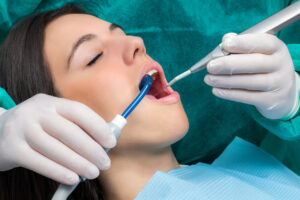

Why Deep Cleans Are Important
One of the first things that happen when plaque builds up underneath your gums is that it can create pockets that trap food particles or bacteria. If your dental surgeon doesn’t thoroughly clean out those pockets, this could lead to tooth decay and eventually tooth loss. Brushings alone aren’t going to be enough!
For your gums to stay healthy, you must keep them free of plaque buildup underneath teeth by brushing and flossing daily. When plaque is thicker than usual, however, you might need some more help to get rid of it. Having your teeth cleaned at the dental surgery is one way of making sure that your gums are clean and healthy. Even if you brush and floss daily, plaque still builds up slowly under your gum line. With deep cleanings, however, your dentist can attack the build-up more aggressively than with just tooth brushing and flossing combined. The result of such an appointment will be healthier gums and cleaner teeth.
What Not Getting Deep Cleans Can Lead To
And now for a little bit of bad news: choosing not to get deep cleanings with a professional every few years means you might have to deal with more tooth decay and disease in the future. This is not a good option for those who care about their oral health.
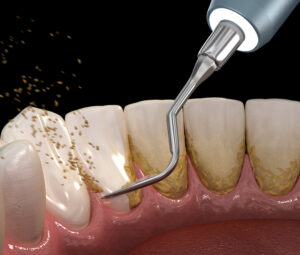
Risks of Deep Cleanings
As with any medical procedure, there are risks involved in getting deep cleaning done at the dentist’s office. The biggest risk would have to be a possible infection from bacteria entering the bloodstream during flossing. Dental hygienists carry needles with them while performing flossing so they can give antibiotics to patients right away if need be. Infections are very rare, but it does happen.




